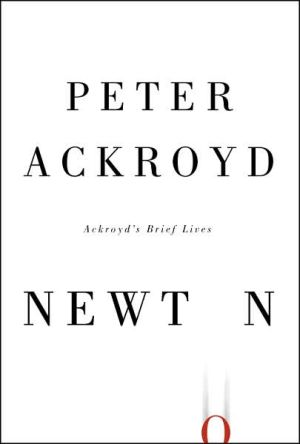

 |

|

The average rating for Newton: Ackroyd's Brief Lives based on 2 reviews is 4 stars.
Review # 1 was written on 2021-02-27 00:00:00 Mark German Mark GermanPeter Ackroyd demonstrates the unique brilliance of Isaac Newton's perceptions, which changed the understanding of the world. Having read this book, I'm startled by how much Isaac Newton was able to do during his life not only in science, but as an MP, as the Master of the Royal Mint overseeing the re-coinage of England, and as head of the Royal Society. And yet these activities account for less than half his time, because it seems that in his later years, his real interests lay in Alchemy and biblical prophesy and chronology. Newton was also a devotee of Arianism i.e. a heretic. Arianism is a heresy denying the divinity of Christ and originated with the Alexandrian priest Arius ( c. 250- c. 336). Arianism maintained that the Son of God was created by the Father and was therefore neither coeternal with the Father, nor consubstantial. Newton didn't like people who disagreed with him and cast them into outer darkness, eminent people such as Hooke, Flamsteed, and Leibniz were treated like this. Despite his vituperative attitude towards anyone who didn't agree with him completely, it should be remembered that he aligned inductive reasoning with mathematics and rigourous experiment. He revolutionised the study of optics and established the principles of celestial mechanics. He explained the nature of the tides, he discovered the laws of gravity, he discovered the infinitesimal calculus, he invented his own telescope. This book is easy to read and full of anecdotes and information about the genius who was Isaac Newton. |
Review # 2 was written on 2013-03-20 00:00:00 Ray Carnell Ray CarnellSir Isaac Newton died on this day in 1727. He was born on Christmas day 1642, the posthumous child of an illiterate yeoman farmer. His mother remarried and left him to be raised by his grandmother. At a local school, he distinguished himself by his inventiveness at creating toys and gadgets; it quickly became apparent he had no aptitude for farming. At his teacher's urging, he was sent to Cambridge, where he so excelled in math that he was appointed a professor at the age of 26. His full genius bloomed during an involuntary vacation forced by the Great Plague of 1665. He experimented with prisms to uncover the nature of light; he worked up the essentials of calculus; and he laid the foundations for a theory of gravitation. Upon his return to the academic world, he began to publish some of what he had learned. Ackroyd points out that Newton took his time to make his mark; indeed, he maintained a secretiveness regarding his work for much of his life. He researched and speculated on alchemy and theology, which thoughts he was probably just as wise not to commit to publication. (In fact, had his religious convictions become known, he would undoubtedly have had to resign his academic post.) He was contentious regarding his scientific opinions resulting in a number of professional feuds, with Robert Hooke, John Flamsteed and Gottfried Leibnitz in particular, that are perhaps the most regrettable blemish on his reputation. Peter Ackroyd provides the historical context to clearly delineate Newton's salient character traits and make his greatest accomplishments clear to the modern reader. This is a good introduction to Newton in a compact biography of the great English scientist, the third in Ackroyd's Brief Lives series. |
CAN'T FIND WHAT YOU'RE LOOKING FOR? CLICK HERE!!!